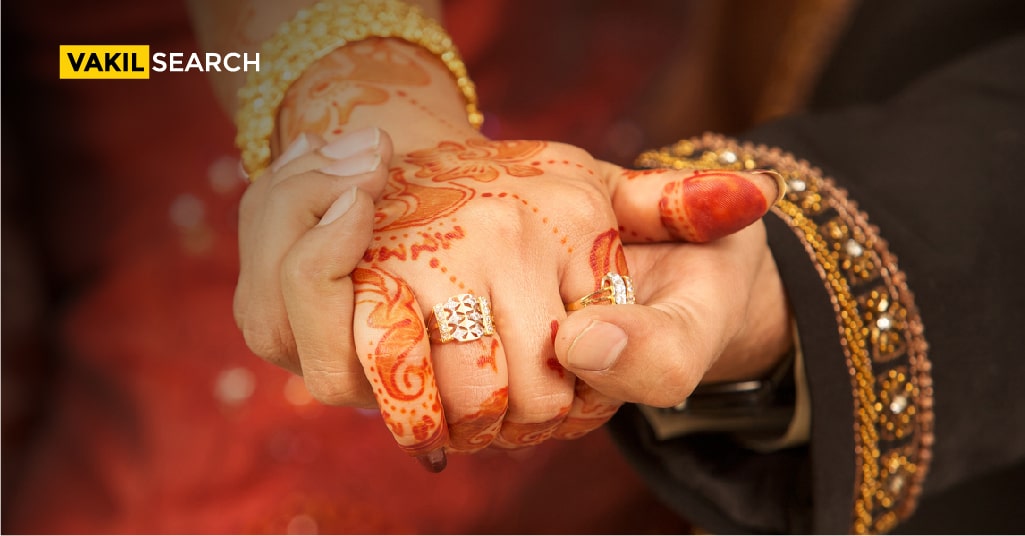Canceling a court marriage in India can be done by filing for annulment or divorce, depending on the circumstances of the marriage. However, the process for annulment or divorce can be complicated and may require legal assistance.
Steps to Cancel a Court Marriage in India
In general, here are the steps to cancel a court marriage in India:
Determine if annulment or divorce is appropriate: Annulment is a legal procedure that declares a marriage to be void as if it never existed. Divorce, on the other hand, terminates a valid marriage. Annulment is typically only available in limited circumstances, such as fraud, mental incapacity, or duress, while a divorce is available in a wider range of circumstances, including irreconcilable differences.
Gather necessary information and documents: Depending on the grounds for annulment or divorce, you may need to gather documentation to support your case, such as proof of fraud, mental incapacity, duress, or irreconcilable differences.
File a petition:
To start the process, you will need to file a petition with the appropriate court, either in the jurisdiction where you reside or where the marriage took place. The petition should include the grounds for annulment or divorce, along with any supporting documentation.
Serve notice:
After you have filed the petition, you will need to serve notice on your spouse, informing them of the proceedings. Service of notice can be done in a number of ways, such as through a process server, registered mail, or by publication in a newspaper.
Wait for a response:
After your spouse has been served with notice, they will have an opportunity to respond to your petition. Depending on the circumstances of your case, this may involve filing a counter-petition, or simply responding to the allegations made in your petition.
Attend court hearings:
Depending on the complexity of your case, you may need to attend one or more court hearings. During these hearings, the court will hear evidence from both sides and make a determination as to whether to grant annulment or divorce.
Final order:
If the court grants annulment or divorce, it will issue a final order, which will be binding on both parties.
It’s important to note that the process for a legal separation or divorce can be complicated, and may require the assistance of a lawyer. Additionally, the specific laws and procedures for annulment or divorce may vary from state to state in India, so it’s important to consult a local attorney for guidance.
It’s also worth mentioning that while the above steps outline the general process to Cancel Court Marriage in India, the specific details and requirements can vary depending on the jurisdiction in which the marriage took place. For this reason, it’s important to consult a local attorney for guidance on the specific requirements of your case.
Court Marriage Requirements
Court marriage registration is a legal union between two individuals in the presence of a government official, such as a judge or a magistrate, instead of a religious leader. It is also referred to as a civil ceremony and is recognized by the state.
In most countries, the requirements for a court marriage vary, but typically include proof of identity, age, and citizenship for both partners, and consent from both parties. Some jurisdictions may also require premarital counseling, medical tests, or the completion of a waiting period.
To get married in a court, both partners must appear before a government official and exchange vows and rings. The official will then sign the marriage certificate, which is the legal record of the union. It is important to note that a court marriage is not a substitute for a religious wedding and couples may still choose to have a religious ceremony after their court marriage.
One of the main benefits of court marriage is that it is a quick and simple process, often taking only a few hours to complete. Additionally, court marriages are often more affordable than traditional religious weddings. They may be a good option for couples who do not wish to have a religious ceremony or who may face obstacles to getting married in a religious context.
However, it is also important to consider the potential drawbacks of court marriage. In some countries, court marriages may not have the same level of recognition and respect as religious marriages, and the couple may encounter social stigma or difficulties in getting certain benefits or privileges, such as tax breaks or immigration status.
Conclusion – Cancel A Court Marriage
In conclusion, the process to cancel a court marriage in India can be a complex, involving the filing of a petition, service of notice, and attendance at court hearings. Depending on the circumstances of your case, you may need to file for annulment or divorce and may require the assistance of a lawyer. The specific laws and procedures for annulment or divorce may vary from state to state, so it’s important to consult a local attorney for guidance.



